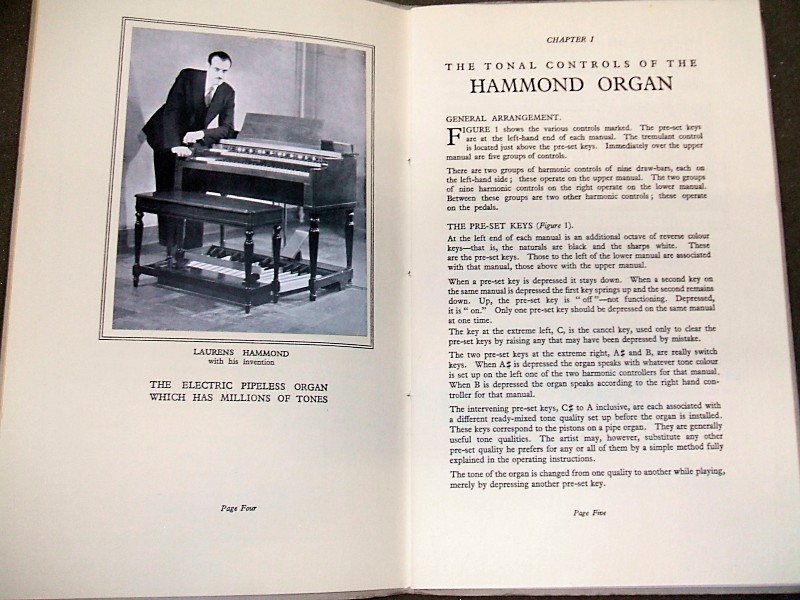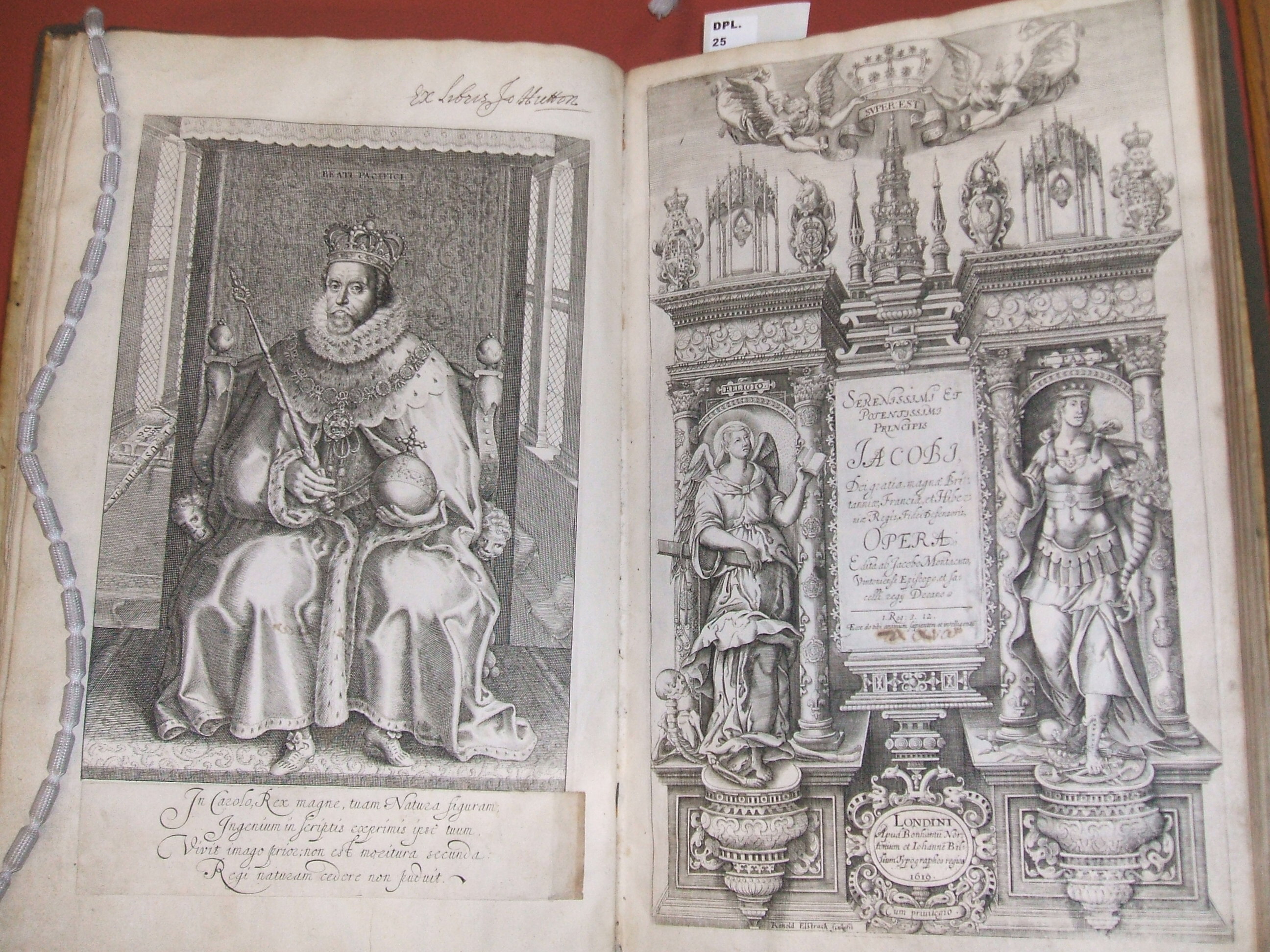New College Library’s Torah Scroll (Pentateuch) was on display to visitors today in the Funk Reading Room.
Scrolls such as these are an integral part of Jewish communal life, being read in their entirety in a yearly cycle. The portions of the masoretic texts are divided into weekly portions and their reading in communal worship is followed by a set reading from the prophetic books of the Hebrew Bible.
This scroll is no longer suitable for ritual use, as it is no longer bound onto its original etzim (rollers) or clothed in its original protective and decorative garments. Some letters are damaged, indicating its non-kosher status. Conservation work was undertaken in 2008 to ensure that the scroll was preserved in an appropriate state for study and teaching, and it received new rollers and new box. The funds for this work were raised by the New College Library Book Sale.
The provenance of the scroll is not known, but it may have come to the Library at the same time as other objects from Jewish religious practice in the New College Library objects collection. These include a phylatctory or tefillin, a small, black leather cube-shaped case made to contain Torah texts.
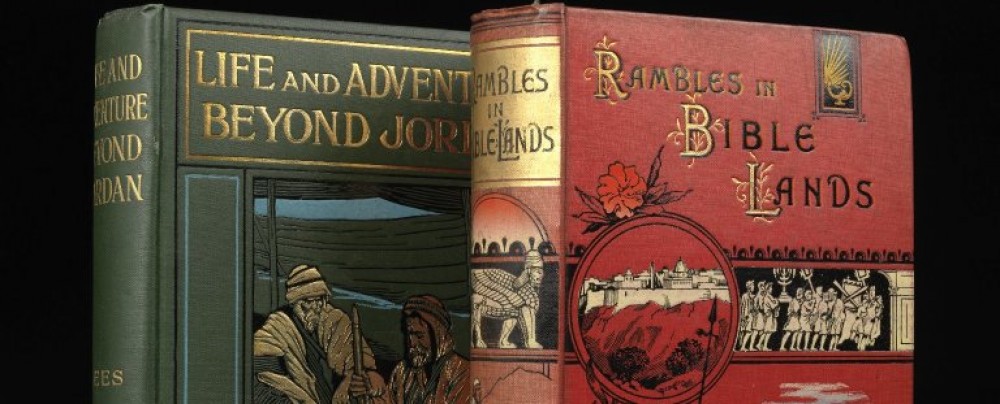
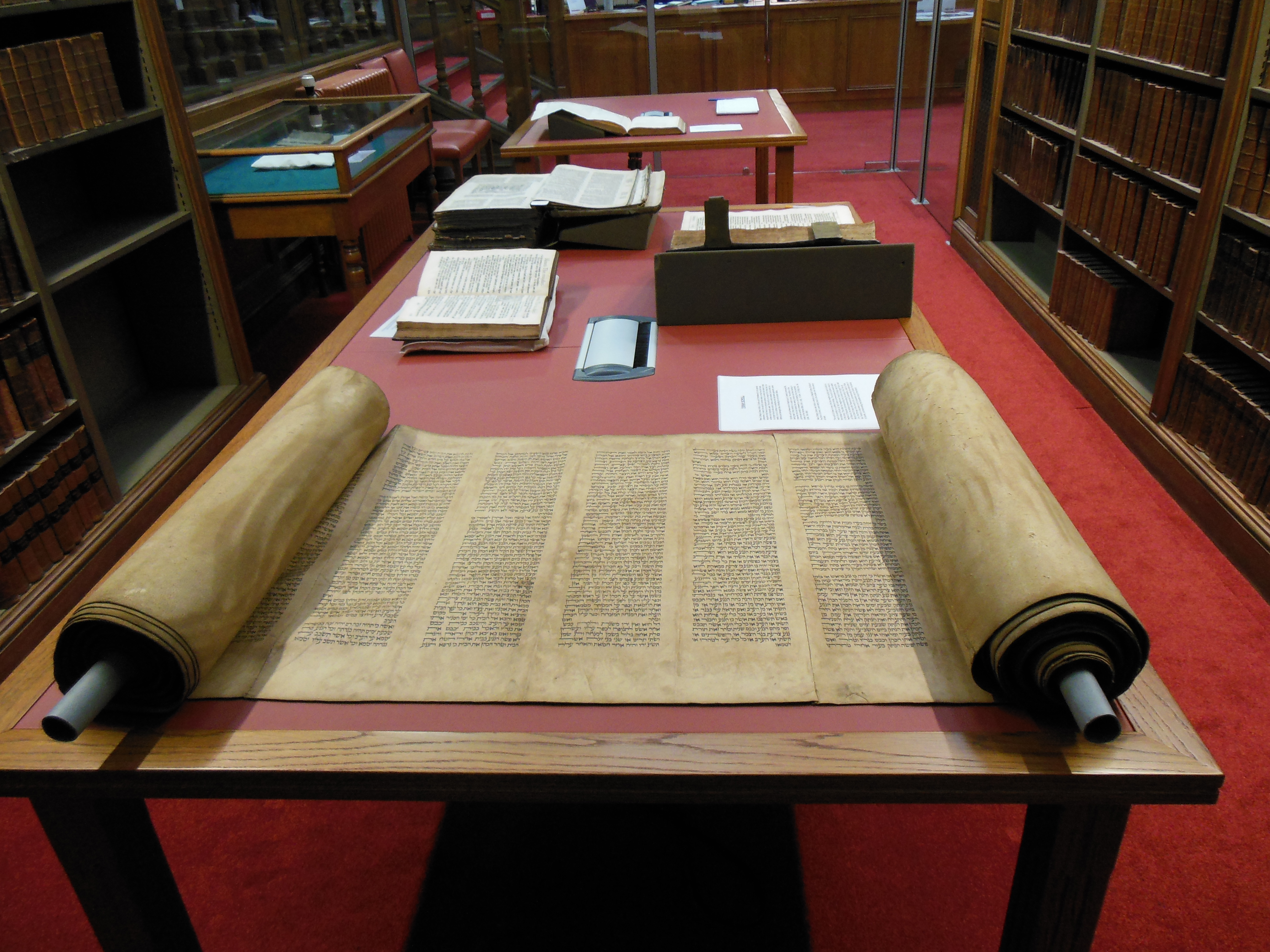
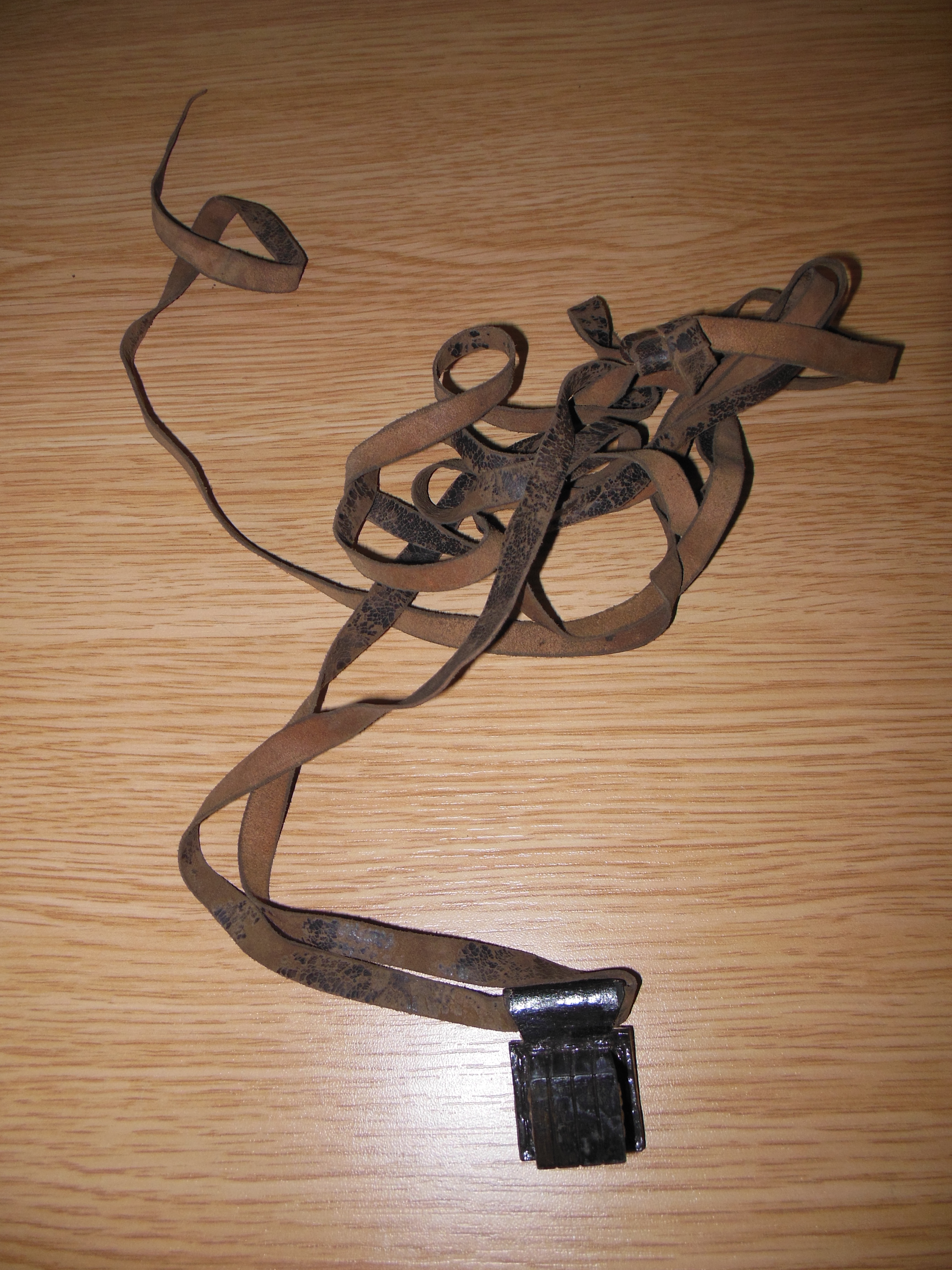
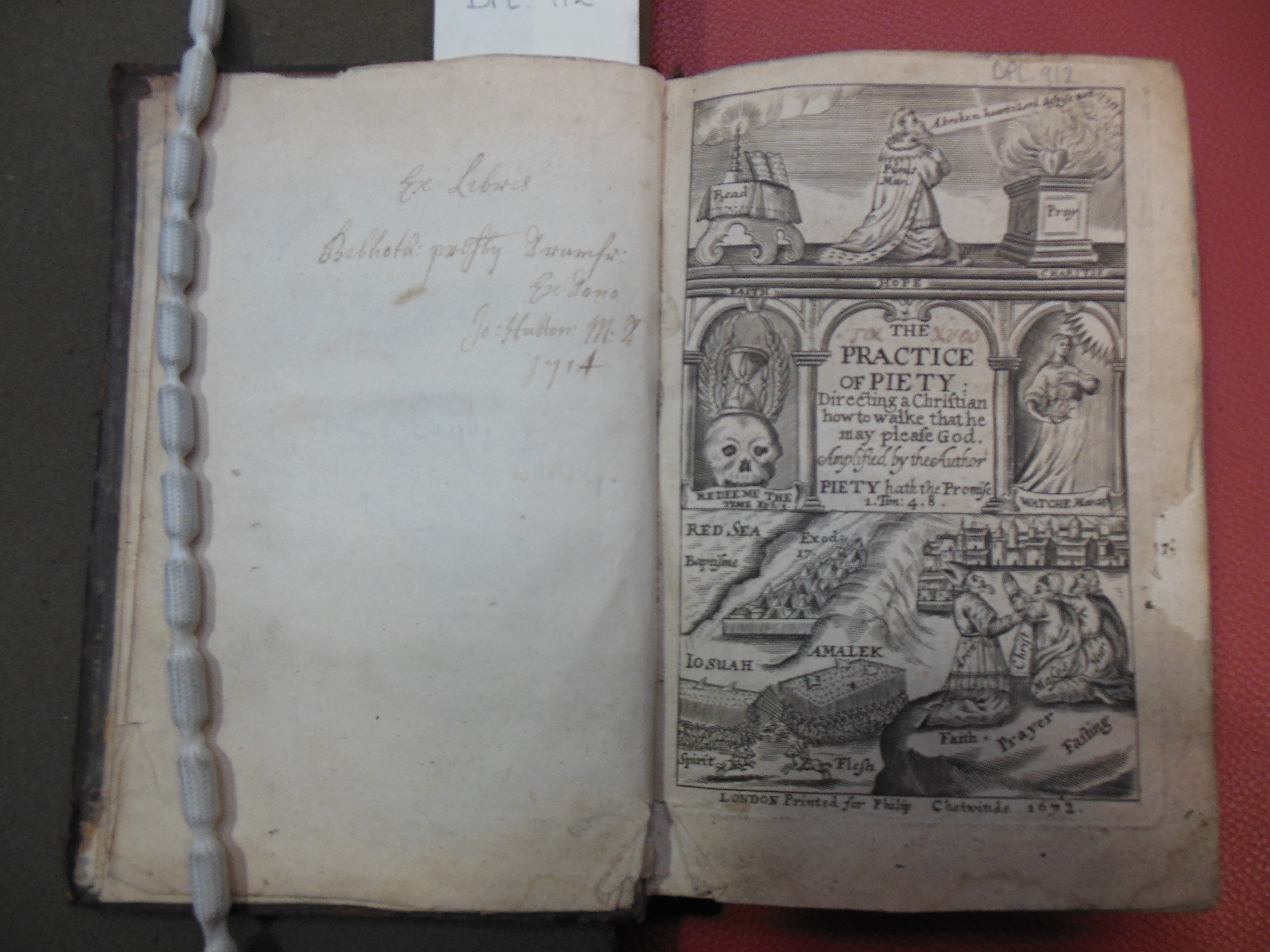
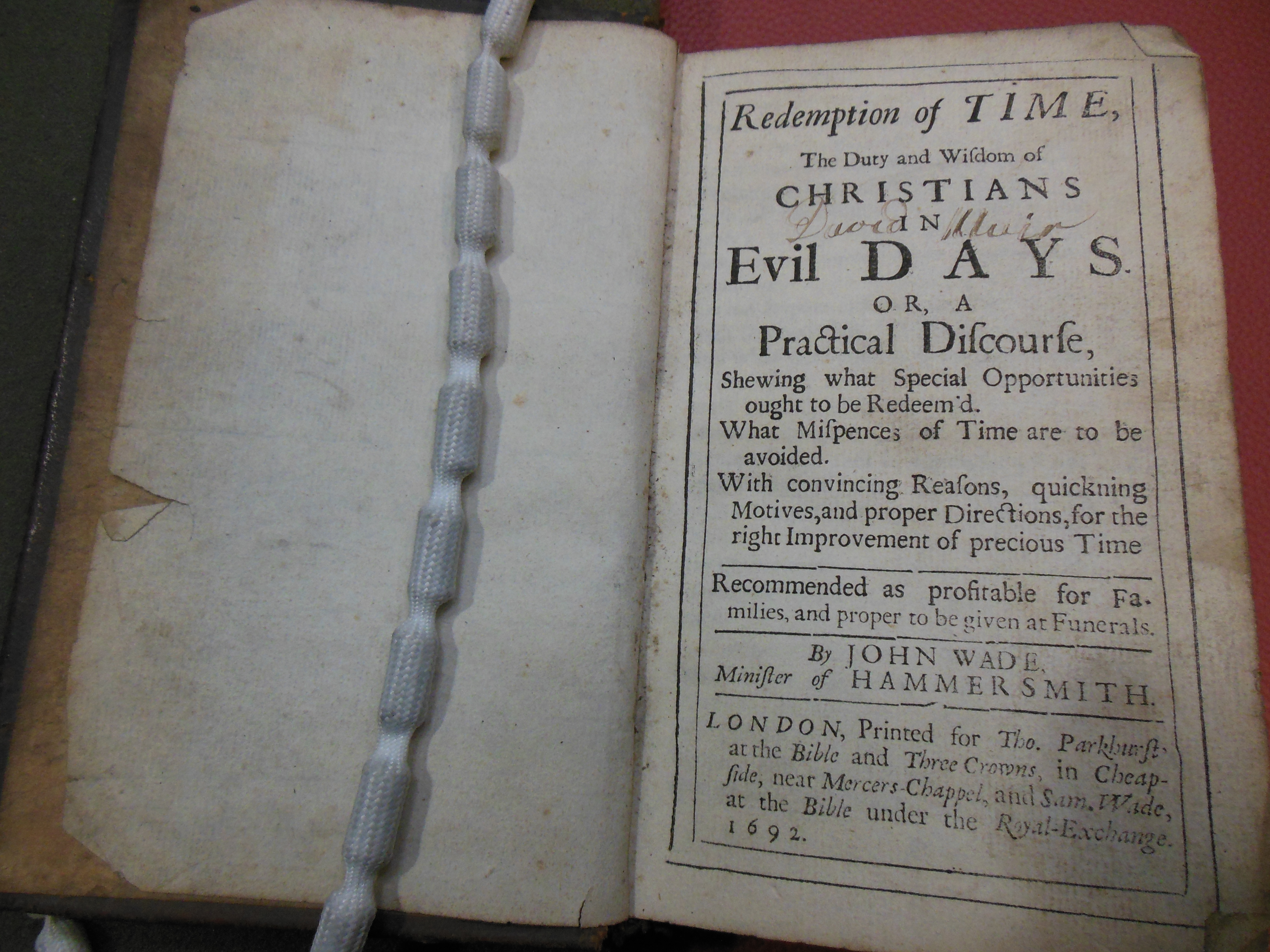
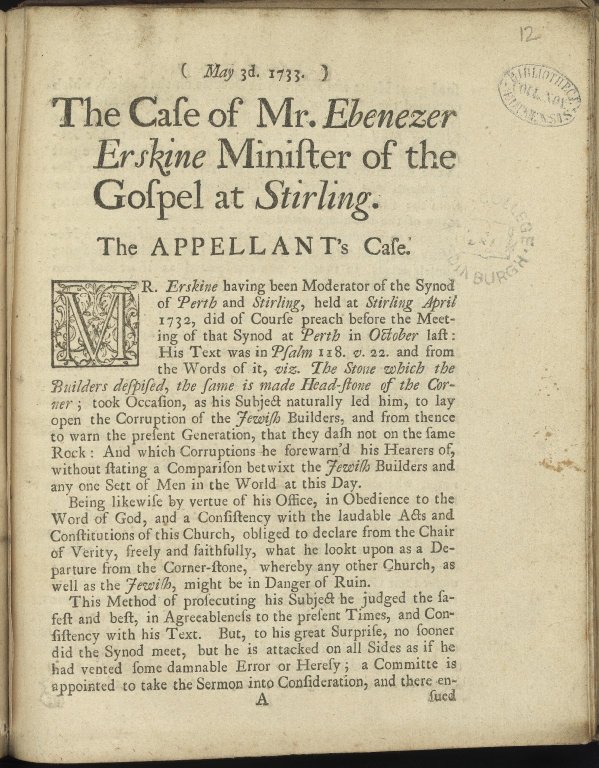

![Tractatus venerabilis Inceptoris Guilgelmi Ocka[m] de sacramento altaris. De Sacramento Altaris](http://libraryblogs.is.ed.ac.uk/newcollegelibrarian/files/2013/04/inc-13.jpg?w=227)
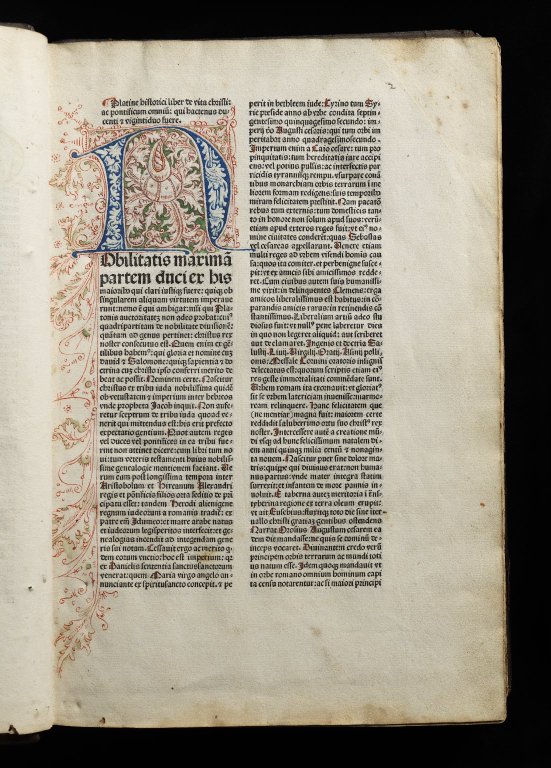


![Nazi massacres of the Jews & others : some practical proposals for immediate rescue made by the Archbishop of Canterbury and Lord Rochester in speeches on March 23rd 1943 in the House of Lords /William Temple. London : Victor Gollancz, [1943] Z.h.30/24](http://libraryblogs.is.ed.ac.uk/newcollegelibrarian/files/2012/12/6-nov-010.jpg?w=225)
